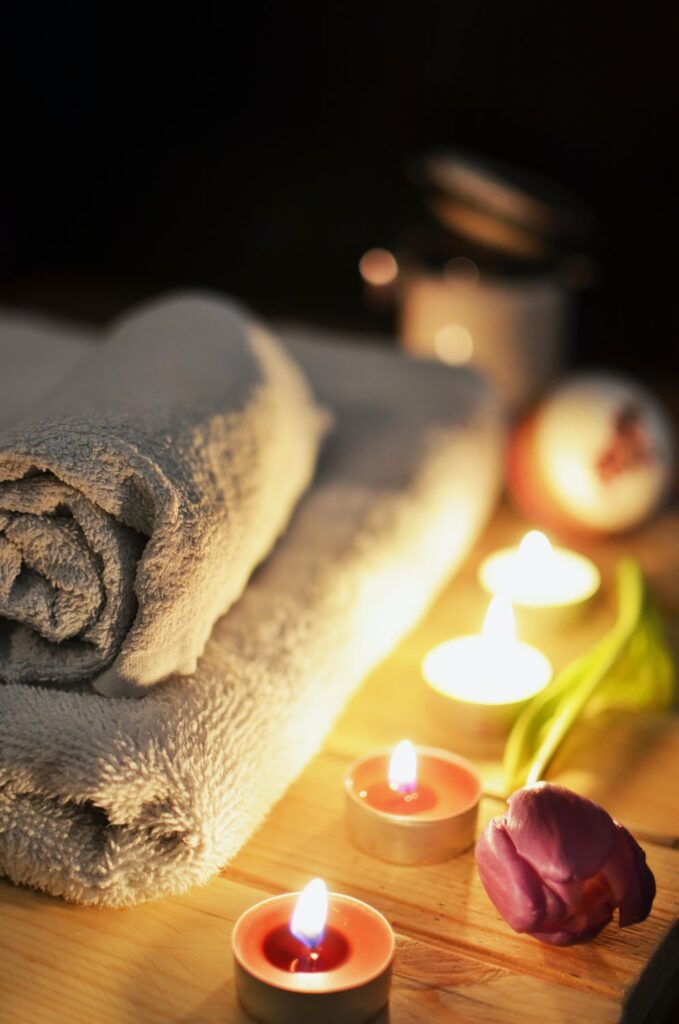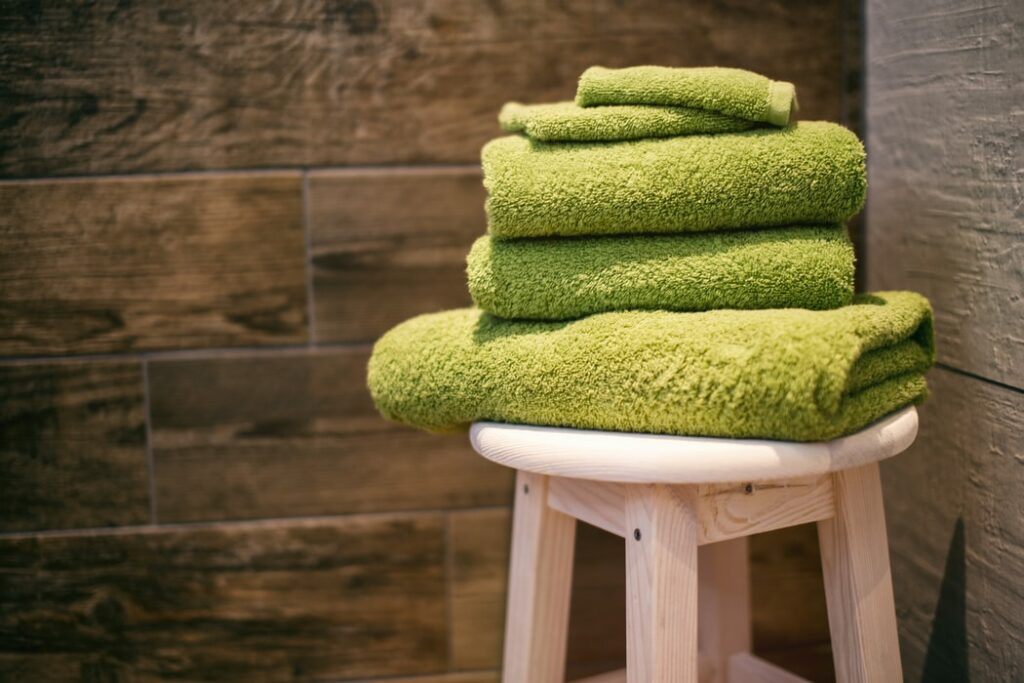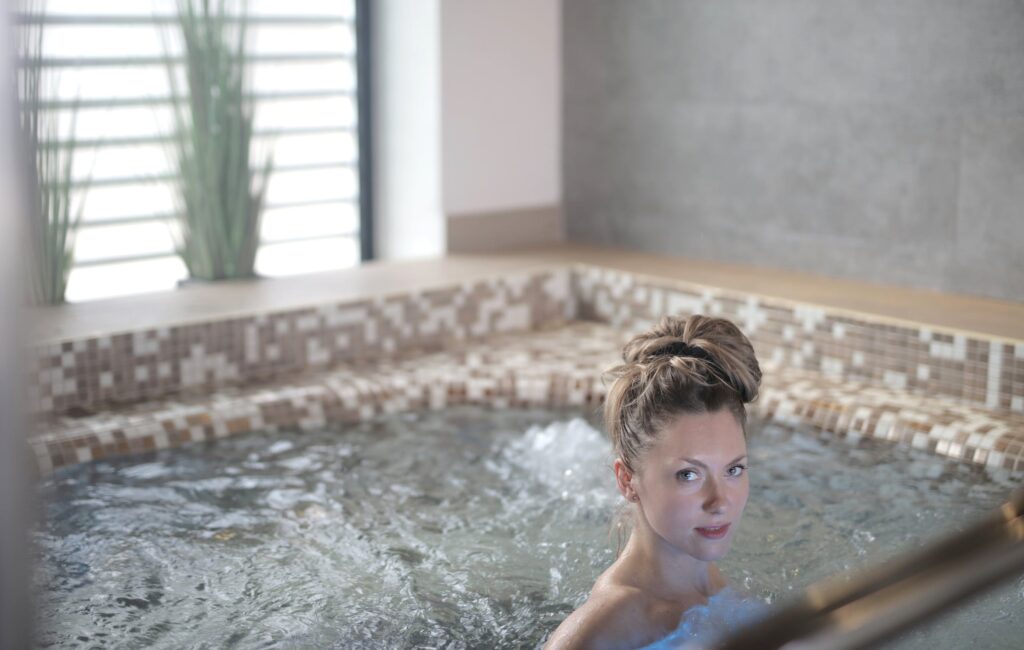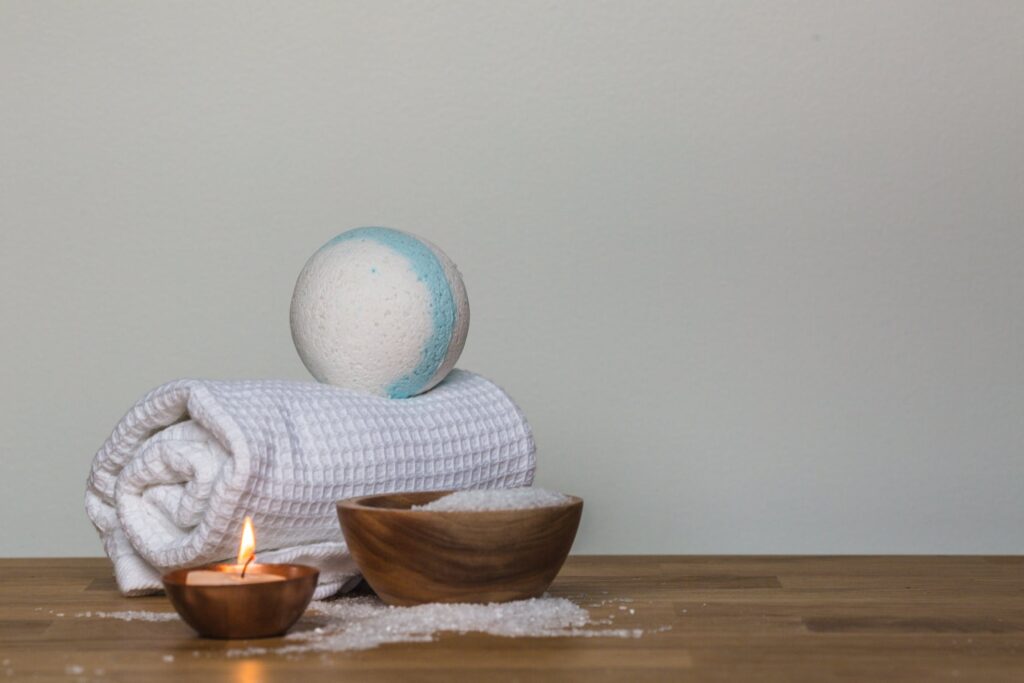Cryotherapy. Acupuncture. Hypnosis. It seems like there's a brand-new health "must-do" every week that needs you to shell out cash. However, could you please elaborate? What was previously considered antiquated is now trendy. Everyone from overworked businesspeople to fans of functional fitness are currently discussing a time-tested practise: saunas. Experts from diverse backgrounds, including naturopaths and yogis, are contributing to the discussion.
The majority of people believe that saunas originated in Europe, and more specifically the Nordic region, although there is historical evidence to suggest that they were beneficial in the Americas. On the other hand, the tradition of the Finnish sauna has stood the test of time and is now well-known around the world.
Recent decades have seen the global spread of the sauna tradition, whose origins are moot. This is because both medical professionals and laypeople have realised the potential health benefits of sauna use.
Saunas are typically designed for use in compact homes or rooms, where the user can experience a dry or wet heat session.
Traditional practises have been vital to the development of many different societies and cultures since ancient times. "But they're becoming very hot because they're more available than ever before," says New York City-based psychotherapist Paul Hokemeyer, Ph.D.
Nope, a sauna in your gym is not necessary to break a sweat today: Sweattheory in Los Angeles and HigherDOSE in New York City are two examples of sauna studios where customers can get hot for around a dollar per minute (most sessions are 30 minutes).
FAQs About Sauna
You can only wear flip-flops or shoes in a private home sauna. But in saunas open to the public, wearing shoes or flip-flops could seem rude to others who are barefoot. It is rude to wear shoes in a sauna, making the lower areas unsanitary.
The sauna induces changes in the secretion of hormones, some similar to changes induced in any other stress situation and others characteristic of exposure to the sauna. Noradrenaline is usually the only catecholamine raised by the sauna in people accustomed to it.
The benefits of a hot tub are similar to a sauna. They both achieve stress relief, improved sleep, muscle relaxation, and cardiovascular improvement. However, the difference is a hot tub has more offerings such as massaging jets, hydrotherapy options, relaxing sounds of water, and sore muscle relief.
Cooling off after the sauna is important because you can catch a cold if you sweat too much. Sauna-goers should leave enough time to cool down before warming up again. If you can, don't have a shower straight after the sauna. It's better for the body if you cool off in the fresh air first.
Large, observational studies in humans have identified strong links between sauna use and lower risk for age-related conditions, such as cardiovascular disease, cognitive decline, and premature death.
What is a Sauna?
Heat therapies have been utilized for a very long time for the purpose of healing and promoting well-being; in fact, these practices date all the way back to the time of the ancient Greeks, Mayans, and Romans. Simply put, a sauna is a small or large chamber that has been created with the sole purpose of inducing sweating. In addition, saunas have a solid scientific foundation, and there are ten clinical health benefits that have been demonstrated by contemporary medicine that will make you want to book a sauna session as soon as possible.
Different Types of Saunas
Today, saunas are an integral part of daily life in a wide variety of cultures, from the traditional outdoor saunas of Finland to the Swedish batsu, the jjimjilbangs of Korea, and the sento of Japan. Even if you only spend a few minutes every day in a sauna, you could be reaping a range of health benefits, and there are variants of dry and steam (or wet) saunas, as well as the most recent infrared saunas, that offer this. Users have reported that a good, deep sweat brings about a general feeling of calm and well-being by relieving stress, lowering levels of muscle tension, and delivering these benefits.
In the course of human history, numerous varieties of wet and dry saunas, in addition to the most recent infrared saunas, which transfer direct heat to the organism rather than raising the temperature of the air and the space, have been developed.
In evaluating whether or not to include saunas as part of your health regimen, the following categories of saunas should be taken into consideration:
- The heat in a dry sauna might come from wood, hot stones, natural gas, or electricity.
- The application of water to the heat source in a steam sauna results in the generation of steam.
- Infrared saunas make use of infrared heaters, which produce light that is transformed into radiant heat that is absorbed by the top layer of the skin.
Infrared saunas can be further classified into the following categories:
- Saunas that use near-infrared technology
- Far infrared saunas (FIR)
- Infrared saunas that emit the full spectrum
In comparison to traditional dry and wet saunas, which raise the temperature of the room by heating the air, infrared saunas generate heat directly via the infrared light and do so at a lower temperature.
Health Benefits of Sauna
They Can Help Blood Pressure
In a recent paper published in the Mayo Clinic Proceedings, experts suggested that sauna bathing might have beneficial effects on health. A lower risk of vascular diseases like heart disease, high blood pressure, and neurocognitive disorders is one of these advantages.
They have a pretty good theory as to why this is occuring. Researchers from the same institution examined the cardiovascular effects of a 30-minute sauna session on a separate group of 100 people earlier in 2018. The results provide new insights on the matter.
Study participants saw decreases in both their systolic and diastolic blood pressure after just 30 minutes in the sauna. Systolic blood pressure measures the force exerted on your arteries and veins during a heartbeat, while diastolic blood pressure measures the pressure in your circulatory system in between beats.
According to the American Heart Association, more than half of all Americans will develop hypertension during their lifetimes. Yet, a single sauna session may be enough to lower blood pressure, according to study published in the Journal of Human Hypertension.
One hundred participants were tested, and each person spent thirty minutes in a sauna. The average systolic blood pressure (the top number) of the participants dropped from 137 to 130 mmHg as soon as they stepped out of the sauna, and the average diastolic blood pressure dropped from 82 to 75 mmHg. Significant drops in blood pressure can be seen in both of these statistics. Furthermore, the participant's systolic blood pressure stayed low for an additional half an hour after exiting the sauna, which the researchers take to be proof of the long-term benefits of sauna use for blood pressure.
One of the reasons behind this, as explained by Dr. Caroline Robinson of Northwestern Memorial Hospital South Loop, is that the heat from a sauna stimulates blood vessels to dilate, resulting in a faster and more precisely timed flow of blood.
Those who have cardiac problems, including high blood pressure, are discouraged from utilising saunas, as per her recommendations. If you're interested in giving it a try, though, you should talk to your primary care physician first.
Saunas Make The Immune System Stronger
One more of the important advantages of using a sauna is that it contributes to the development of a more robust immune system.
White blood cells can be produced more effectively by the use of saunas. The body's primary line of defense against invading pathogens and diseases is the white blood cells, often known as leukocytes.
Due to the fact that habitual sauna users have a higher concentration of white blood cells, they not only maintain better health but also recover more quickly from illness.
Should I go to the sauna instead of getting the flu shot? Sadly, it doesn't work precisely like that. However, saunas have been shown to assist in the development of a more robust immune system. Athletes who spent fifteen minutes in the sauna experienced an instantaneous boost in their white blood cell count, which is a measure of immune strength. This finding was presented in a study that was submitted to and accepted for publication in the Journal of Human Kinetics.
However, it is crucial to note that this immunity-boosting impact was greater in regular endurance exercise than in non-exercisers, so you really shouldn't just sweat in the sauna. There are plenty of other ways to get your sweat on.
The heat from the sauna causes an increase in the body's heat shock protein, which in turn stimulates antigen-presenting cells and causes the release of cytokine, which in turn stimulates the natural immune system of the body.
They May Make Your Arteries More Responsive
According to the findings of this body of research, saunas have the potential to improve "vascular compliance," which refers to how well your blood vessels react to alterations in pressure. That is a significant contributor to the state of your cardiovascular system as well as the efficiency with which blood is transported throughout your body, including to your brain.
It was discovered that saunas make your blood vessels extremely sensitive to pressure and raise your heart rate. The researchers found that it was fairly usual to see people's heart rates increase as if they were engaging in some form of moderately intense physical activity.
Saunas Help You Look Younger
Your skin, which is one of the most important organs in our bodies, requires regular activity, and saunas are an excellent method to give your skin the workout it needs.
Due to the fact that our skin loses its elasticity as we get older, the pores of our skin become clogged with an increasing number of dead cells. Consequently, a few sessions in the sauna boost blood circulation to our skin, which not only helps the creation of new skin but also removes all of the dead cells that had been accumulating in the past.
Saunas enable the oils, which are naturally present in our skin and function as both natural moisturizers and antibiotics, to be mobilized. This has a big impact on how much younger we seem overall.
They May Be Good For Your Lifespan
Even though this topic has only been investigated in male participants, several separate research has found a correlation between frequent sauna use and a reduced threat of premature death. According to the findings of a study that followed 2,300 male Finns over the course of 20 years, those who went to the sauna once per week had a mortality rate of 49%, while those who went twice per week had a mortality rate of 38%, and those who went practically every day had a mortality rate of 31%.
According to the researchers who were responsible for this study, one reason for this is that saunas are typically done in groups and encourage social bonding, both of which have been shown to have their own set of health benefits. In addition to that, they are designed to be calming and peaceful. However, the impacts of the blood pumping appear to be making a distinction as well.
Easier Weight Loss
To clarify, the only weight you will lose when using a sauna is water weight and not body fat. According to Hokemeyer, "They are beneficial to one's weight-loss program because they enable the person to rest and rejuvenate as well as build a more mindful and good relationship with their body."
Sauna therapy is an effective method for losing weight with very little effort required. Because of the dry heat, a sauna session causes a significant rise in the pace at which the heart beats.
Calibrations based on scientific research indicate that a session lasting twenty minutes at a temperature of approximately 170 degrees Fahrenheit burns more than 500 calories. As a result, the body's metabolism increases in a way that is analogous to the manner in which it speeds up as a result of physical activity, and it is an effective strategy for maintaining a healthy weight.
Saunas Help To Recover From Workouts
There are a lot of compelling reasons why saunas are becoming increasingly common in modern fitness centers. The use of saunas as a post-workout recovery method is highly recommended. Through the process of sweating in a sauna, metabolic wastes can be removed. Because the blood flow to worn-out and strained muscles improves as a result of using the sauna, these muscles are able to recuperate much more quickly and experience a greater sense of relaxation.
The muscles continue to grow in size and there is less breakdown of muscular tissue as a result of increased circulation and oxygen delivery throughout the body. According to the findings of one study, increasing the amount of time spent in a sauna by two hours per day for seven days in a row can enhance human growth hormone (HGH) production by a factor of two to five.
Our bodies can tolerate a certain amount of heat before they become uncomfortable. The ability to withstand greater amounts of heat requires frequent usage of saunas. Because of this, habitual sauna users have a higher heat level of tolerance, and as a result, they experience less fatigue and are better able to sustain their energy level over a longer length of time, which leads to considerable increases in performance in endurance sports.
Optimize Athletic Performance
As a result of improvements in blood flow brought on by hyperthermic conditioning (also known as heat conditioning), more blood is sent to the heart, which results in an increase in the volume of both plasma and red blood cells. This procedure distributes more oxygen across the body, which boosts one's ability to perform physically.
Saunas Make Hair Look Great
On the scalp of each of us is a specialized gland known as the sebaceous gland, which secretes substances that assist maintain the health of our hair and keep it moisturized. Spending some time in the sauna stimulates this gland, causing it to release these beneficial substances and contribute to the overall attractiveness of the hair.
There is no need to go into debt purchasing potentially harmful hair care products.
They Could Help Your Brain
The benefits of improved circulation extend to the brain as well. One of our writers, Leigh Ann, says that sauna use can help with things like getting to sleep and staying asleep, as well as improving your mood, reducing your risk of developing Alzheimer's disease and dementia, and alleviating the symptoms of depression and anxiety. In this latest study, researchers looked at a huge database of information and discovered that older Finnish men who used saunas had a far lower risk of acquiring Alzheimer's disease and other forms of dementia than those who did not. Yet, assuming a cause-and-effect relationship might have negative consequences.
The researchers say that it is unclear if the "neurocognitive preventative characteristics" of sauna exposure are exerted by the sauna itself or whether the stimulating nature of the experience is what actually protects or slows the advancement of these memory problems. It is debatable whether or not the neurocognitive protective benefits of sauna exposure actually occur or if they are a byproduct of the exercise itself. The time spent in the sauna itself may not be as significant as the time spent chatting with friends or solving a problem.
Consider this: when you visit the sauna at your gym, do you find that the folks there seem relaxed and at ease? Although you can't physically sweat your worry away, many individuals find saunas relaxing, says New York City-based therapist Kathryn Smerling, Ph.D. She argues that these spaces are ideal for rest and relaxation since they mimic the conditions of a nest in every way (being warm, quiet, enclosed, etc.). If you were a bird, you'd feel the same way.
A study published in Psychosomatic Medicine found that patients' reports of relaxation improved after daily sauna sessions. She maintains that taking breaks from technology, even if only for a few minutes at a time, can have a profound effect on one's mental well-being and stress levels. Because of this, she advises her patients who can tolerate the heat to visit the sauna often.
In the sauna, she says, you shouldn't expect to feel a certain way. Regular sauna visits have been found to have positive impacts on mental health, while you won't come out of the sauna a completely changed person and the benefits may be hard to recognise for some individuals at first.
They Seem To Protect Your Lungs
It might seem paradoxical to use a sauna when you already have a cold or while you are in the thick of the cold season, but the data reveals that doing so is a smart idea. Even if you have asthma or other persistent breathing issues, studies have shown that going to the sauna can boost your lung function. Additionally, going to the sauna regularly during the winter can minimize your chance of getting a cold or pneumonia. If you are experiencing shivering in your apartment when the temperature drops below freezing, it may be a smart idea to get thee to a sauna. This, of course, will not prevent someone else in the sauna from sneezing on you, but it will help you feel warmer.
Lower Cholesterol
If your doctor has recently suggested that you try to lower your cholesterol levels, you might benefit from a visit to the sauna. The overall cholesterol levels of study participants decreased dramatically after they used the sauna every other day for twenty days. The results of this research were just published in the peer-reviewed journal Occupational and Environmental Medicine and Health. After analysing data, the researchers concluded that the positive effects of sauna use on cholesterol levels were comparable to those one would anticipate from moderate physical exercise.
Because there is, in Robinson's view, no real substitute for exercise, you shouldn't change your routine. In contrast, physical exertion has no equal.
So this is a great reason to set up regular roasting sessions.
Saunas Help You Look Younger
Your skin, which is one of the most important organs in our bodies, requires regular workouts, and saunas are an excellent way to give your skin the workout it needs.
Due to the fact that our skin loses its elasticity as we get older, the pores of our skin become clogged with an increasing number of dead cells. Consequently, a few sessions in the sauna boost the blood flow to our skin, which not only helps the growth of new skin but also removes all of the dead cells that had been accumulating in the past.
Saunas enable the oils, which are naturally present in our skin and function as both natural moisturizers and antibiotics, to be mobilized. This has a significant impact on how much younger we look overall.
They Help Soothe Chronic Conditions
According to the findings of a recent study, taking sauna baths may help relieve the pain and other symptoms associated with musculoskeletal conditions such as osteoarthritis, rheumatoid arthritis, and fibromyalgia. As part of their ability to alleviate pain, they are also effective against headaches of a chronic nature.
Why? Scientists believe that this is due, at least in part, to the fact that saunas appear to lower levels of inflammation in the blood. In a number of conditions that cause chronic pain, inflammation can get out of control and cause severe pain as well as fatigue; however, saunas appear to decrease those markers. Of course, this is not a cure; rather, it merely provides a temporary reprieve; however, for some people, this could be a significant benefit.
Saunas Promote Social Interaction
It's possible that people who utilize the private sauna with a smaller space won't have access to this perk. However, if you or your contacts have a large private sauna or if you go to public saunas, they can serve as a wonderful venue for social interaction between friends and relatives.
You can simply go to the public sauna that is located closest to you if this choice is not available to you.
Conclusion
Saunas have been used for centuries to heal and promote well-being, and are now becoming increasingly popular due to their potential health benefits. Saunas offer a range of health benefits, such as relieving stress, lowering levels of muscle tension, and delivering a general feeling of calm and well-being. Saunas can lower blood pressure and make the immune system stronger by stimulating blood vessels to dilate, resulting in a faster and more precisely timed flow of blood. Saunas have been shown to help develop a more robust immune system, improve vascular compliance, and help look younger. Saunas are beneficial for weight loss and post-workout recovery, as they reduce the risk of premature death and help to recover from workouts.
Increased circulation and oxygen delivery in saunas can lead to increased muscle growth, improved athletic performance, and reduced risk of Alzheimer's disease and dementia. Saunas may have neurocognitive protective benefits, but they may not be as significant as the time spent chatting with friends or solving problems. Saunas can help reduce cholesterol levels, boost lung function, reduce shivering, help look younger, and help soothe chronic conditions. Saunas can help relieve pain and other symptoms associated with musculoskeletal conditions, reduce inflammation, and promote social interaction.
Content Summary
- Experts from diverse backgrounds, including naturopaths and yogis, are contributing to the discussion.
- The majority of people believe that saunas originated in Europe, and more specifically the Nordic region, although there is historical evidence to suggest that they were beneficial in the Americas.
- On the other hand, the tradition of the Finnish sauna has stood the test of time and is now well-known around the world.
- Saunas are typically designed for use in compact homes or rooms, where the user can experience a dry or wet heat session.
- Simply put, a sauna is a small or large chamber that has been created with the sole purpose of inducing sweating.
- In addition, saunas have a solid scientific foundation, and there are ten clinical health benefits that have been demonstrated by contemporary medicine that will make you want to book a sauna session as soon as possible.
- Even if you only spend a few minutes every day in a sauna, you could be reaping a range of health benefits, and there are variants of dry and steam (or wet) saunas, as well as the most recent infrared saunas, that offer this.
- A lower risk of vascular diseases like heart disease, high blood pressure, and neurocognitive disorders is one of these advantages.
- Study participants saw decreases in both their systolic and diastolic blood pressure after just 30 minutes in the sauna.
- According to the American Heart Association, more than half of all Americans will develop hypertension during their lifetimes.
- Yet, a single sauna session may be enough to lower blood pressure, according to study published in the Journal of Human Hypertension.
- One hundred participants were tested, and each person spent thirty minutes in a sauna.
- The average systolic blood pressure (the top number) of the participants dropped from 137 to 130 mmHg as soon as they stepped out of the sauna, and the average diastolic blood pressure dropped from 82 to 75 mmHg.
- Furthermore, the participant's systolic blood pressure stayed low for an additional half an hour after exiting the sauna, which the researchers take to be proof of the long-term benefits of sauna use for blood pressure.
- White blood cells can be produced more effectively by the use of saunas.
- However, saunas have been shown to assist in the development of a more robust immune system.
- Athletes who spent fifteen minutes in the sauna experienced an instantaneous boost in their white blood cell count, which is a measure of immune strength.
- Even though this topic has only been investigated in male participants, several separate research has found a correlation between frequent sauna use and a reduced threat of premature death.
- Easier Weight LossTo clarify, the only weight you will lose when using a sauna is water weight and not body fat.
- The use of saunas as a post-workout recovery method is highly recommended.
- According to the findings of one study, increasing the amount of time spent in a sauna by two hours per day for seven days in a row can enhance human growth hormone (HGH) production by a factor of two to five.
- One of our writers, Leigh Ann, says that sauna use can help with things like getting to sleep and staying asleep, as well as improving your mood, reducing your risk of developing Alzheimer's disease and dementia, and alleviating the symptoms of depression and anxiety.
- In this latest study, researchers looked at a huge database of information and discovered that older Finnish men who used saunas had a far lower risk of acquiring Alzheimer's disease and other forms of dementia than those who did not.
- The researchers say that it is unclear if the "neurocognitive preventative characteristics" of sauna exposure are exerted by the sauna itself or whether the stimulating nature of the experience is what actually protects or slows the advancement of these memory problems.
- It is debatable whether or not the neurocognitive protective benefits of sauna exposure actually occur or if they are a byproduct of the exercise itself.
- The time spent in the sauna itself may not be as significant as the time spent chatting with friends or solving a problem.
- Although you can't physically sweat your worry away, many individuals find saunas relaxing, says New York City-based therapist Kathryn Smerling, Ph.D. She argues that these spaces are ideal for rest and relaxation since they mimic the conditions of a nest in every way (being warm, quiet, enclosed, etc.).
- Additionally, going to the sauna regularly during the winter can minimize your chance of getting a cold or pneumonia.
- Lower CholesterolIf your doctor has recently suggested that you try to lower your cholesterol levels, you might benefit from a visit to the sauna.
- According to the findings of a recent study, taking sauna baths may help relieve the pain and other symptoms associated with musculoskeletal conditions such as osteoarthritis, rheumatoid arthritis, and fibromyalgia.
- Scientists believe that this is due, at least in part, to the fact that saunas appear to lower levels of inflammation in the blood.
- However, if you or your contacts have a large private sauna or if you go to public saunas, they can serve as a wonderful venue for social interaction between friends and relatives.






